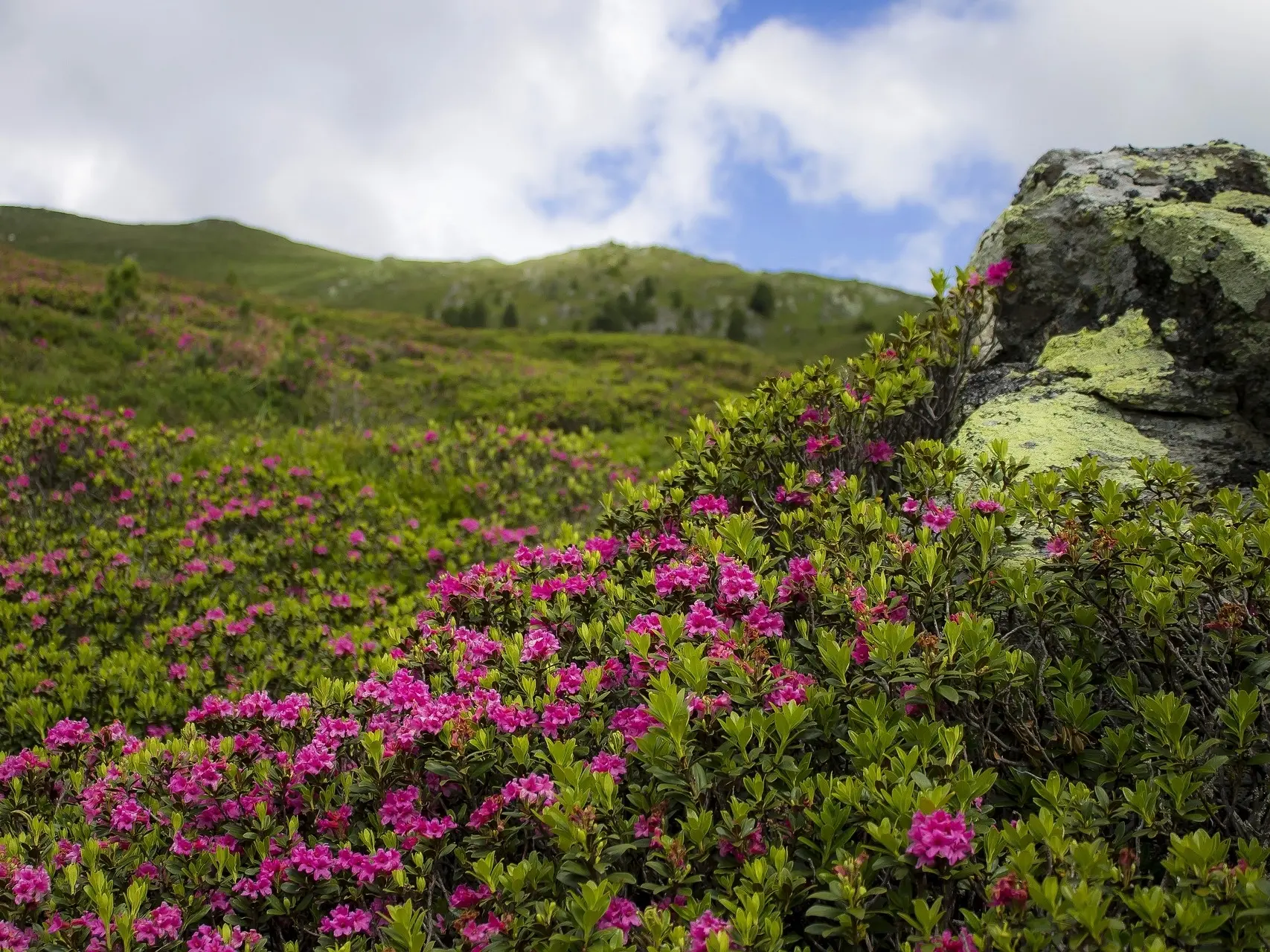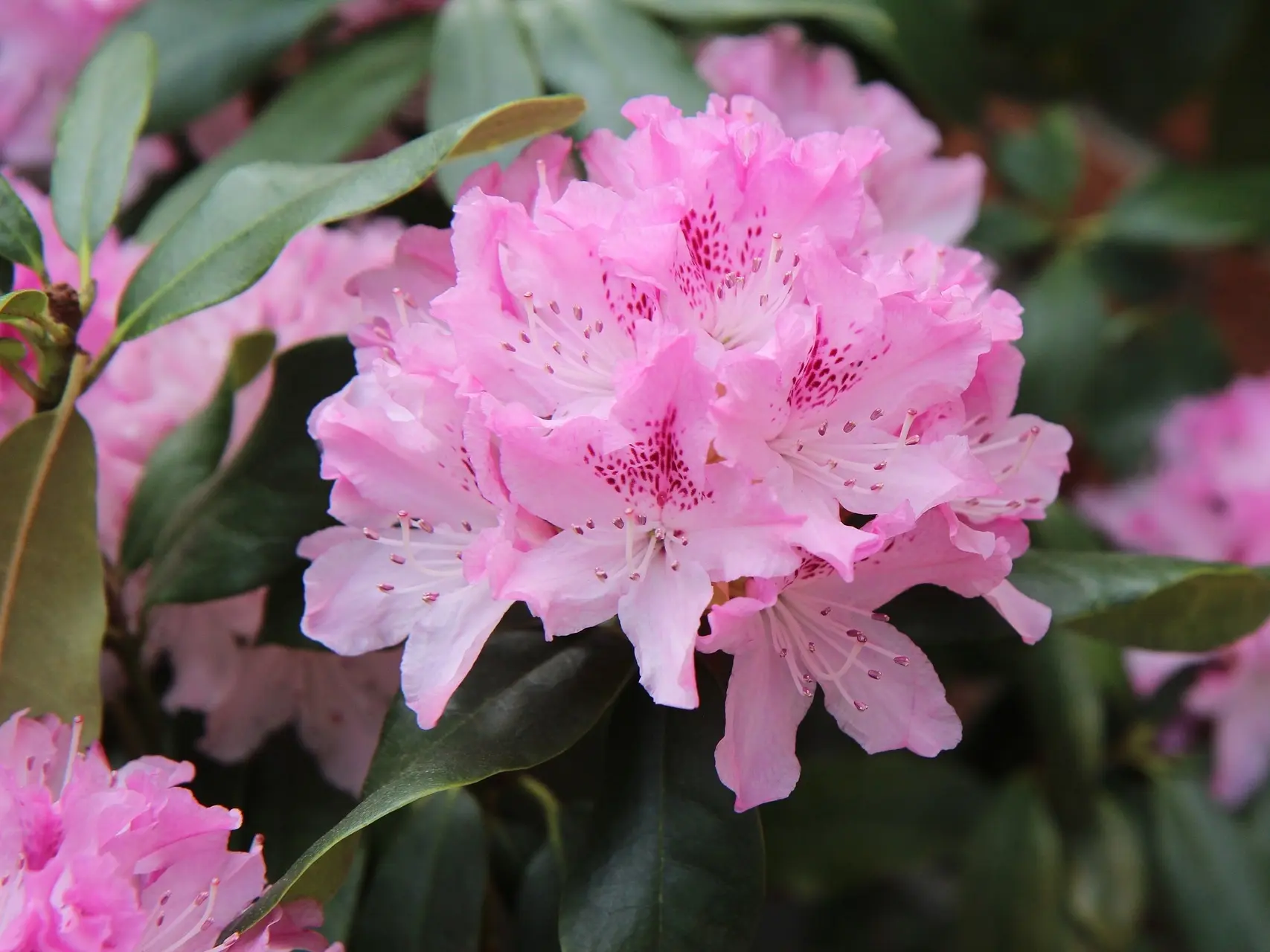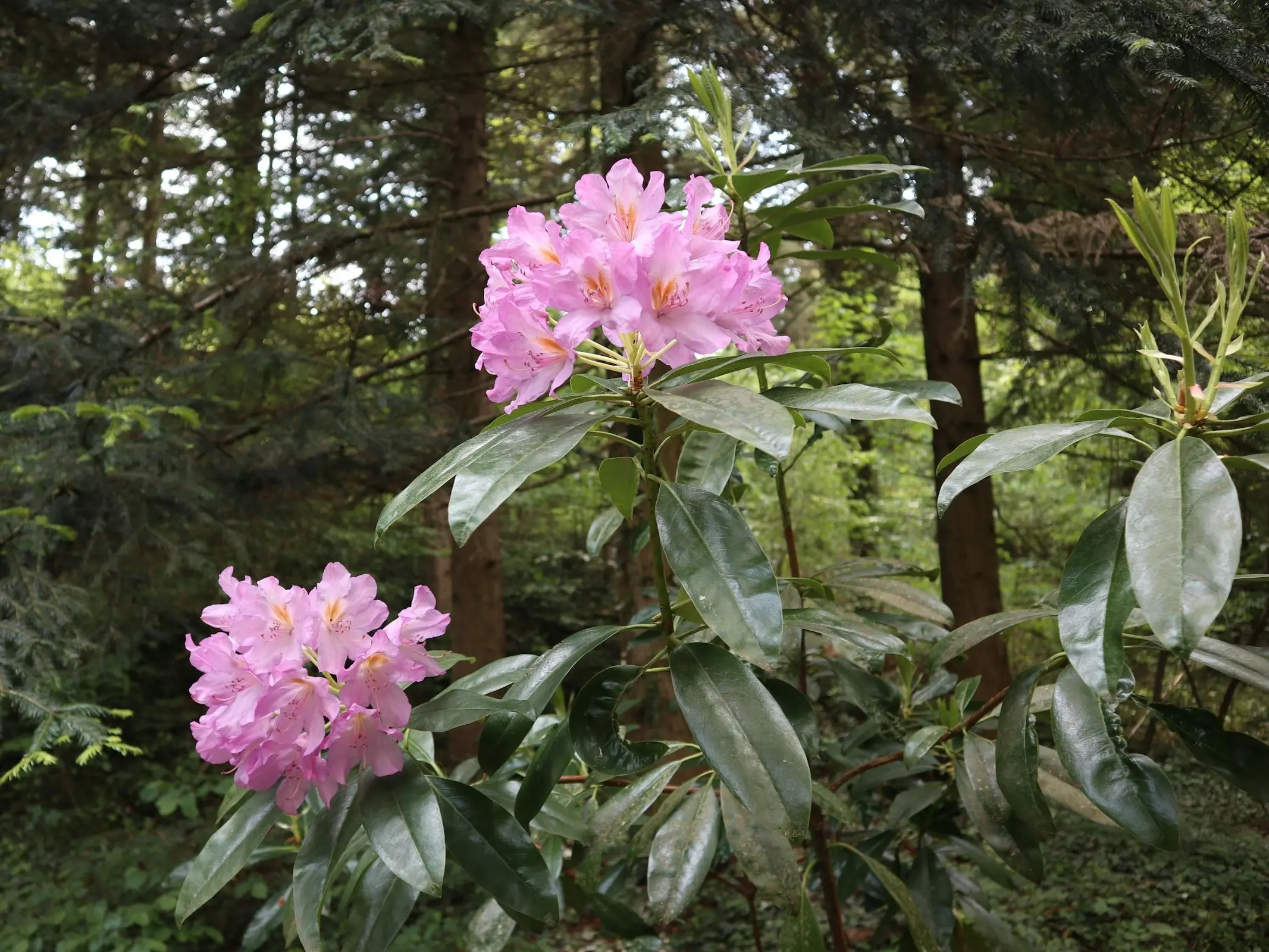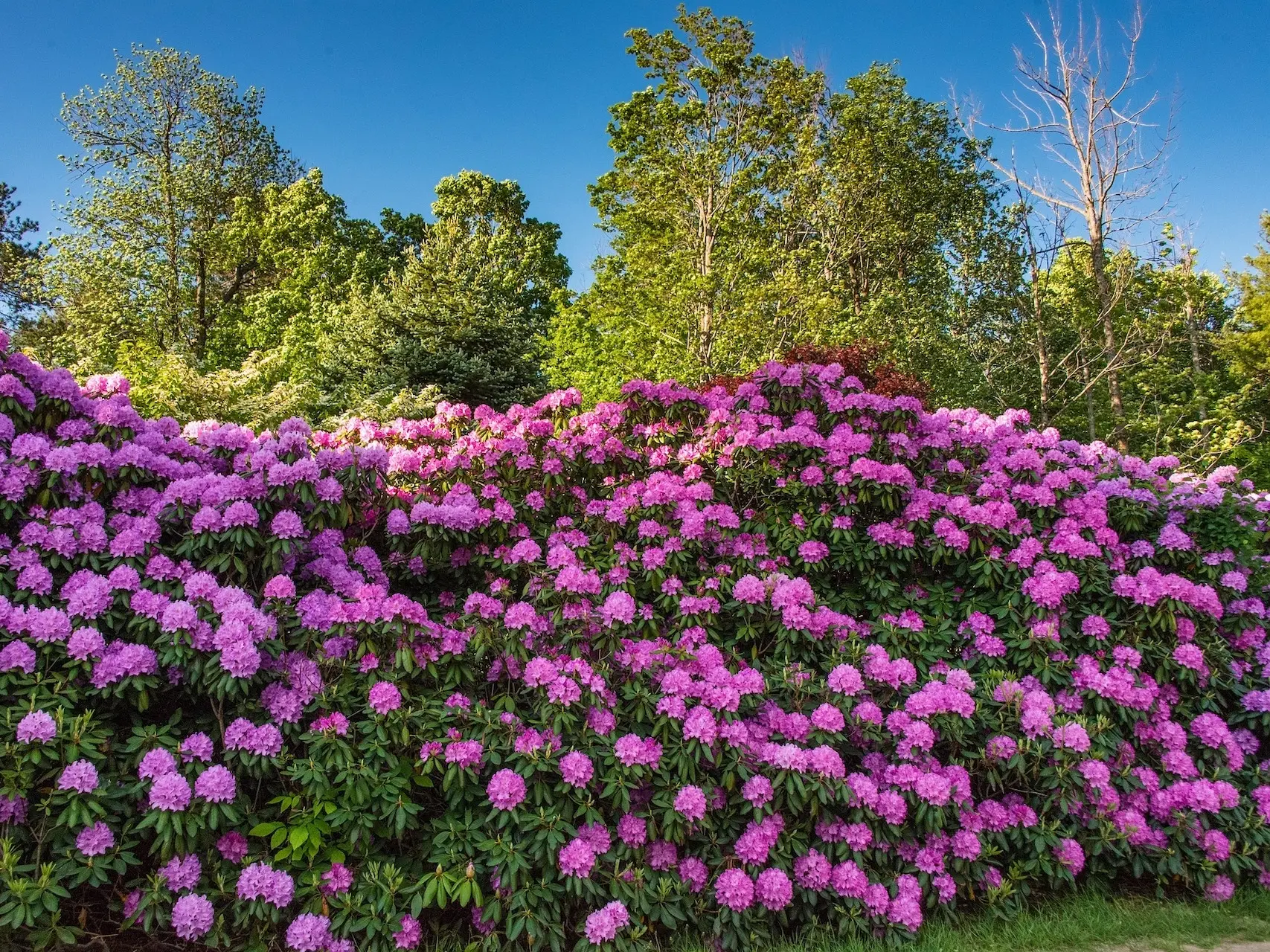
Names
Rhododendron species
Description
Large evergreen or deciduous shrub or tree with large, oblong leaves that grow in a spiral arrangement. Flowers are white / purple / rose / red / yellow / orange, grow in showy clusters of bell shaped blooms.

Concern Level
Only during drought conditions, unpalatable. Generally used in ornamental planting.
Toxic Parts
The entire plant is toxic.

Symptoms
Occur within a few hours of ingestion, digestive upset, drooling, lack of appetite, diarrhea, colic, depression, weakness, lack of coordination, stupor, paralysis of the legs, weak heart rate, death.
Danger
Contains Grayanotoxin which affects skeletal and cardiac muscle and nerve function. Can be fatal.

More Information
*It should be noted that we are not veterinarians. This information is written specifically for horses and should be used for reference purposes only. If you think your horse has eaten something toxic call your vet right away.